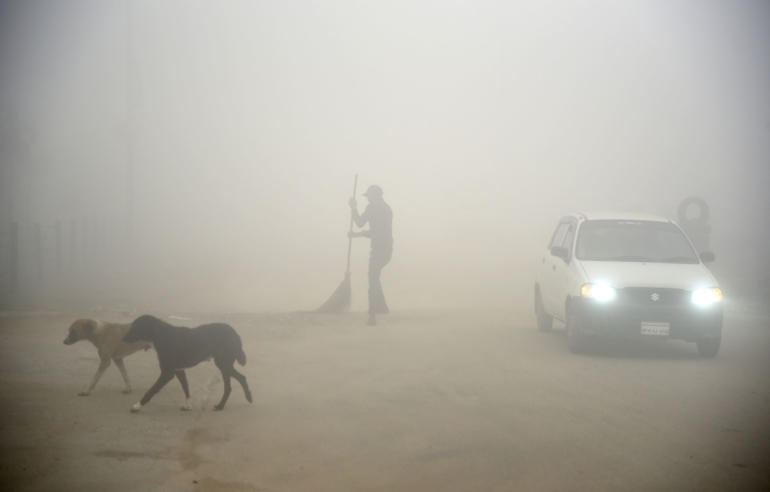Podcast: Play in new window | Download (Duration: 19:46 — 27.2MB) | Embed
The air in Delhi, India’s capital with almost 20 million residents, is unbreathable.
Over the last week, levels of dangerous fine particles in the air – known as PM 2.5 – have ranged between eight to sixteen times the safe limit for humans. It’s a toxic mix of pollutants Delhi’s Chief Minister Arvind Kejriwal has likened to a “gas chamber”.
Emergency measures have been taken by Delhi’s government, including cancelling school, halting construction, diverting flights, handing out face masks, and rationing the number of vehicles allowed on the street.
But are these just ineffective stopgap measures in a country where diseases related to air pollution kill an estimated 1.5 million people a year?
With us to discuss the air crisis in Delhi is Dr. Sweta Chakraborty. She’s a risk and behavioral scientist who is an expert on climate science.
Links from the podcast:
Dr. Sweta Chakraborty on Twitter: @SWETAC
The Climate & Security Podcast:
https://climateandsecurity.org/podcast/
We Don’t Have Time:
https://www.wedonthavetime.org/
 CGTN America
CGTN America A sweeper cleans a street as stray dogs walk past in the morning smog in Greater Noida, near New Delhi, India (AP Photo/R S Iyer)
A sweeper cleans a street as stray dogs walk past in the morning smog in Greater Noida, near New Delhi, India (AP Photo/R S Iyer)
